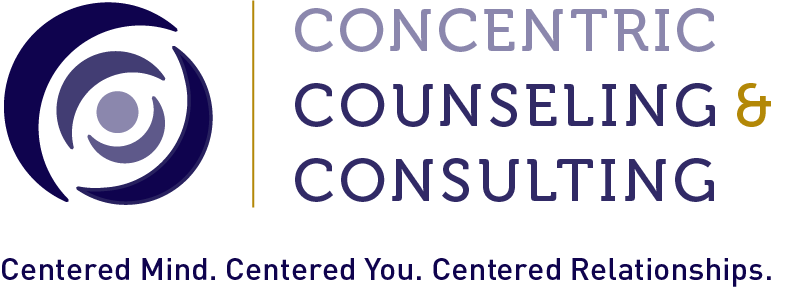Finding Balance Between Healthy and Unhealthy Anxiety
/By Concentric Counselor Charles Weiss, LPC
There are 10 seconds left of the clock in the state championship game and your team is down by 2 points. You have the ball and the fate of the team is in your hands on what will you do next, either pass or take the game winning shot. Sweat is protruding down your face, your heart is beating a thousand miles a hour, your mind is racing with a million and one different case scenarios on what you should do and then your anxiety starts to take over. However, you realized that your anxiety has allowed you to think quicker on your feet and make better decisions, because you don’t let it control and consume you. 3, 2, 1 and throw up a prayer of shot from about 35 feet away from the basket, knowing that being vulnerable to your anxiety, you can live with the consequences… Swish! Game over and you have just won the state championship for your team.
Anxiety… What is it and what does to mean to us when it begins to take control; do we let it control our consciousness or embrace it as an opportunity of growth and self-discovery? According to dictionary.com, anxiety is defined as “a feeling of worry, nervousness, or unease, typically about an imminent event or something with an uncertain outcome.”
When outcomes are uncertain to us in which we want to control, but can’t, anxiety can consume our every decision, thought and feeling. It leads to panic, fear and vulnerability to the unknown, having us over-analyze every decision we make, postulating those “what if” scenarios. Anxiety can so debilitating to someone when it’s severe and impacts our day-to-day activities. Plain and simple, anxiety can suck! Nobody wants to constantly live a life of panic, fear, worry and dread, wondering all the time, “What if?” When you let anxiety take control and inhibit your ability to just be “you”, it becomes unhealthy.
Is there a way to gain back that control over anxiety before it begins to consume us, crippling our sense of self and being vulnerable to “What if…?” Anxiety is your body’s indication that something isn’t right, like a built-in warning system indicating that your homeostasis might be out of balance. When we listen to our body as it talks to us and yes, our body does speak to us, you can begin to prepare and embrace for its impact and figure out how to manage it. Certain symptoms to be mindful of that can alert us when something “isn’t right” and anxiety begins to manifest itself within us, are the following:
· Racing thoughts
· Irritability
· Headaches
· Nausea/upset stomach
· Disturbed sleep
· Muscle tension/tightness
· Shortness of breath
· Mind going blank
· Difficulty concentrating/focusing
· Fatigued
· Palpitations
When we are able to listen to these symptoms we experience, then we can to things to keep these symptoms in check before they exacerbate. Taking the time to do a body scan, deep breathing exercises, mindfulness exercises, progressive muscle relaxation techniques can all help keep the heightened level of anxiety at bay.
Can anxiety be healthy?
Anxiety can also be a way to motivate yourself to reach your goals and achievements that you have established. It can better help prepare yourself to face as well as overcome challenges. When we approach anxiety as a hindrance, it can become unhealthy. You can instead capitalize on it as more of a way to inspire your self-growth and to live a more authentic life. According to Katharina Star, Ph.D., anxiety is another way people can be more empathetic towards other people’s issues and concerns, and help with how they interact with others. She also stated that individuals who struggle with anxiety are often more cautious thinkers, problem solvers and decision makers because they are often building-in “back-up plans” for when things go wrong.
Bottom line, anxiety isn’t always bad and unhealthy when individuals experience it, it can be a way people thrive if they are able to recognize it, understand it, and know how to cope and properly channel the healthy aspects of it. People can still live fully authentic lives when experiencing anxiety, it’s when it takes control and we begin to panic, that derails aspects of our lives.
If you are experiencing at least 3 symptoms of anxiety, that have been affecting your ability to function on a day-to-day basis in a variety of settings (i.e.: school, work, home) and those symptoms have been occurring for at least 6 months in which you find it very difficult to control that worry and anxiety, please contact your local mental health provider and schedule an appointment with a professional who can help you learn how to regain control over your anxiety and transform it into a healthier form of anxiety for you.


